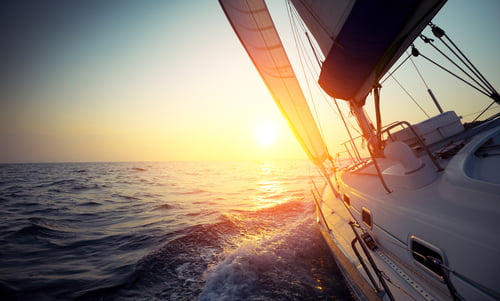Work With Experienced Boating Accident Lawyers In Tampa!
Tampa Personal Injury Attorneys
Recreational Boating Accidents
 Perhaps Florida’s greatest natural resources are its seemingly endless coastline, bays, rivers, and lakes. Florida’s waterways can be very dangerous places for pleasure boaters, recreational fishermen, and swimmers. What many people do not realize is that the laws of Florida may not apply to an accident which occurs on the water. Instead, the general maritime law may control your claim. The general maritime law can be very different from the rules and principles which govern accidents occurring on the land.
Perhaps Florida’s greatest natural resources are its seemingly endless coastline, bays, rivers, and lakes. Florida’s waterways can be very dangerous places for pleasure boaters, recreational fishermen, and swimmers. What many people do not realize is that the laws of Florida may not apply to an accident which occurs on the water. Instead, the general maritime law may control your claim. The general maritime law can be very different from the rules and principles which govern accidents occurring on the land.
One such difference is the statute of limitations. In Florida, most personal injury claims have a four-year statute of limitations period. Claims brought under the general maritime law must be filed within three years.
Another difference is that the owner of a vessel involved in an accident may be entitled to a defense known as limitation of liability. Under this defense, the vessel owner can attempt to limit its financial exposure to an injured party to the value of the vessel after the accident giving rise to the injury. This can be a very effective defense, given that the injured person’s damages often far exceed the value of the vessel responsible for causing those injuries.
Personal Watercraft Accidents
A personal watercraft is a vessel that uses an inboard motor to power a water jet as its primary source of motor power. Although personal watercraft account for a small percentage of registered boats in Florida, they are involved in a disproportionately high number of boating accidents. This is due to the fact that they are small, extremely powerful, and oftentimes driven by individuals with little or no experience in operating them. Also, personal watercraft have unusual stopping and steering characteristics, due to the fact that steering is dependent on water being forced through a nozzle.
Personal watercraft are classified as inboard boats by the Coast Guard and are subject to the same rules and requirements of other vessels, including Coast Guard regulations, the laws of Florida, and local regulations.
Florida’s personal watercraft safety requirements include:
- Personal flotation device required during operation
- Lanyard type engine cutoff must be attached
- No operation one-half hour before sunrise or one-half hour after sunset
- Must be operated in a reasonable and prudent manner
- No person under 14 years may operate
- An operator under 21 must have photo identification and a boater safety card
Florida’s personal watercraft rental requirements include:
- Renter must be 18 years old
- Renter must receive instruction on operational characteristics, safe operation, operator responsibility, and characteristics of local waterways.
- Instructors must have completed an approved boater safety course
- Rental company must carry minimum insurance
Parasailing Accidents
Parasailing has become an increasingly popular recreational activity off the beaches of Florida. It is also an extremely dangerous activity that can result in significant personal injury and even death. Before considering a parasailing trip, you should know the facts about this dangerous activity.
Currently, there are no state laws regulating parasailing in the state of Florida. Often, the only requirement, in order for a parasail company to operate, is that they carry a minimum amount of insurance. The amount is typically set by local ordinance. Almost anyone with a coast guard license allowing them to carry passengers may run a parasail operation.
Before parasailing, the company will require that you sign a release and waiver of liability. This document may prevent you from bringing legal action against the parasail company in the event of an accident. Because these documents are binding and enforceable, you should carefully read and understand what you are giving up before signing.
If you or a family member decides to go parasailing, you should take the appropriate measures to increase your chances of a safe return. First, talk with the operator about the number of years the company has been operating, its experience level, and its safety record. IF ANY OF THE RESPONSES ARE UNSATISFACTORY, DO NOT PARASAIL.
Second, personally check the weather reports. Make sure that there is no possibility of any bad weather or approaching storms. IF THERE ARE ANY SIGNS OF BAD WEATHER, DO NOT PARASAIL.
Finally, visually and manually inspect the gear that will be used during the operation. IF ANY OF THE LINES, HARNESSES, OR STRAPS LOOK WORN OR TATTERED, DO NOT PARASAIL.

